When we last visited the subject of women coffee farmers for a tasting report in 2017, we explored the landscape of gender (in)equity through the lens of roasters who had purchased coffees produced by women — as farm owners, farmers in the field, as part of cooperatives, and as collectives pulled together by intention or by fate. It is still the case that, while women own between 20 and 30 percent of coffee farms in the world, and perform an estimated 70 percent of the labor required for coffee production at various points along the supply chain (International Coffee Organization), they have much less access than men to resource systems needed to sustain these businesses and/or their livelihoods, such as the ability to purchase or lease land, financial support such as loans, informational and educational resources, and the childcare often required to do their work. This is true despite the fact that women comprise 43 percent of the global agricultural labor force (Food and Agriculture Organization of the United Nations).
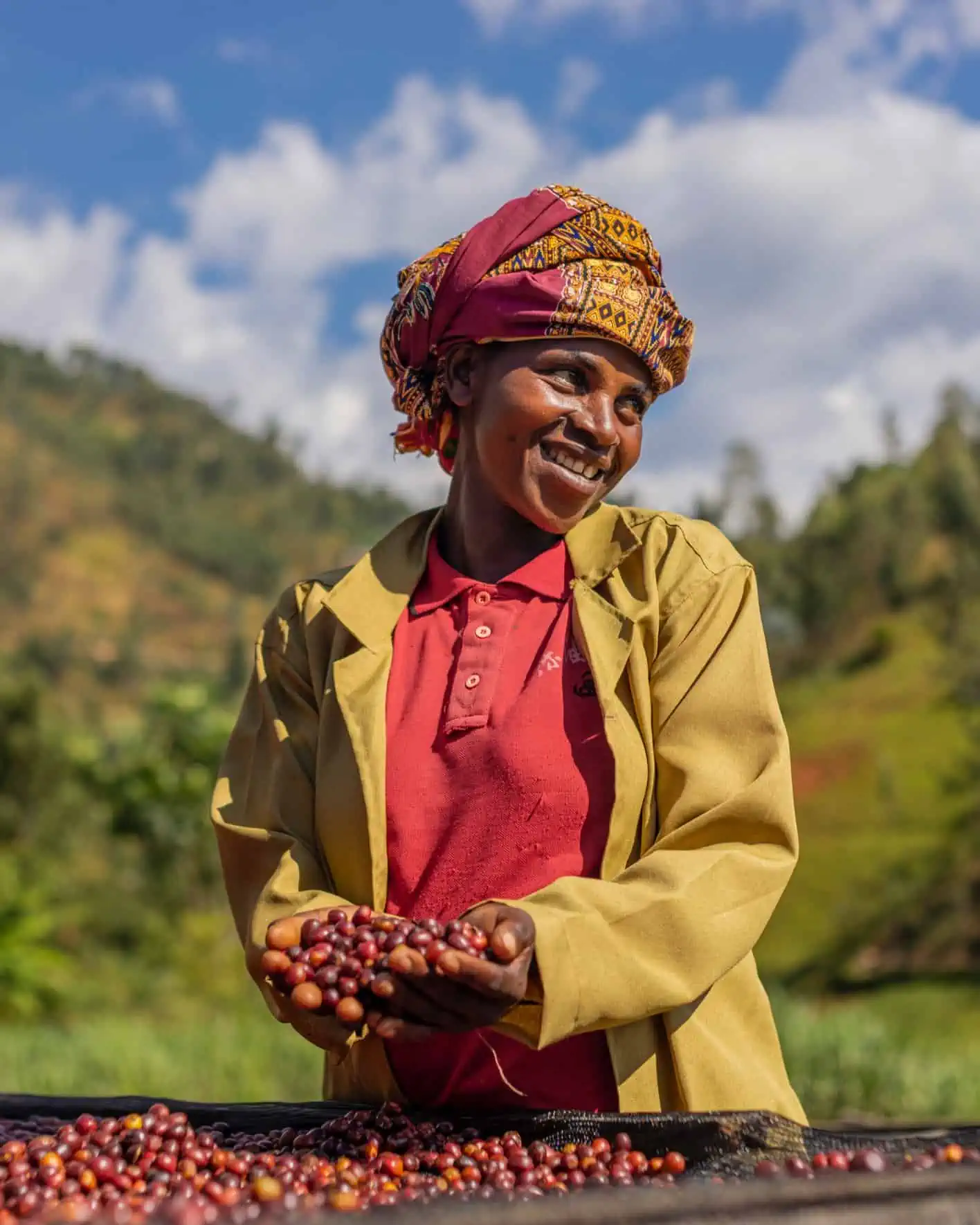
Sorting cherries at Rwanda’s Gasharu Washing Station. Courtesy of Cafecita.
Admittedly, it’s a bit of a construct to call out women producers, specifically, as many hands are involved in the production of any coffee, from seed to cup, as the saying goes. But highlighting the stories of women farmers is a window into the larger socio-political narrative and, as such, an avenue for change-making of various kinds.
This month, we asked roasters to submit coffees from women-owned farms, women’s cooperatives and microlots farmed by women in order to amplify the stories of their exceptional coffees and call attention to the various ways women are succeeding in the coffee industry, despite many obstacles.
We received 45 samples, which ranged in score from 80 to 96, and we review the 10 highest-scoring coffees here, from the wide-ranging origins of Hawai’i, Indonesia, Panama, Guatemala, Ethiopia, Mexico, Burundi, Rwanda and Taiwan. This global span itself demonstrates that there’s much exciting work being done by women in coffee the world over.
Three Top-Scoring Coffees
Coffees from the Big Island of Hawai’i, Sumatra and Panama earned the highest scores in our cupping, at 96, 95 and 94, respectively. Two are from women-owned farms, and one is from a collective.
Lorie Obra and her team at Rusty’s Hawaiian grew, processed and roasted the Grand Champion Red Bourbon Natural we rated 96 for its delicately fruit-forward, richly aromatic profile. From the Ka’u growing region lesser known than Kona on the Big Island of Hawai’i, this Red Bourbon is tropical, juicy and plushly syrupy, and it’s beautifully representative of what the region, long in Kona’s shadow, is capable of.
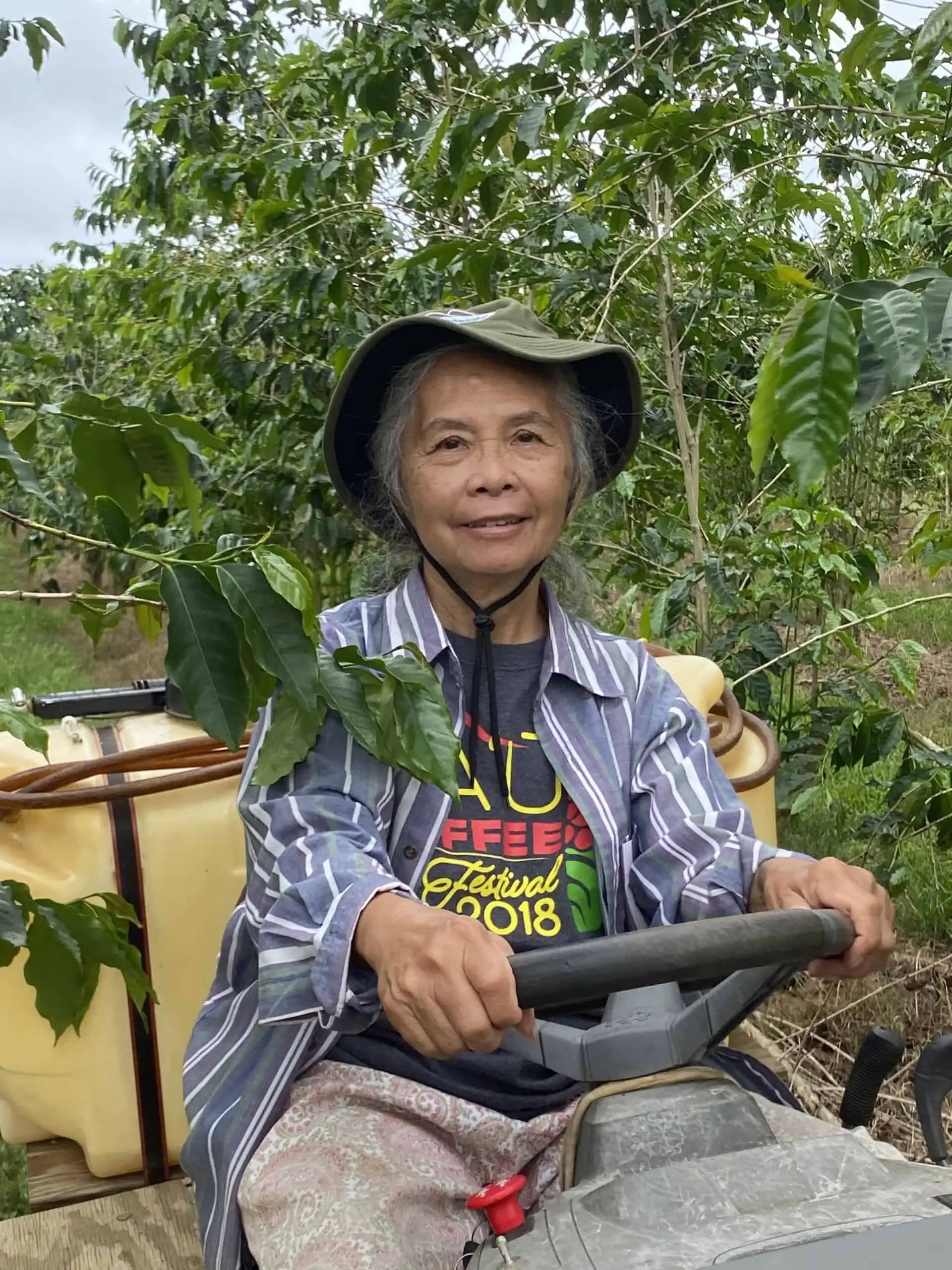
Lorie Obra of Rusty’s Hawaiian, a pioneer in the coffee industry. Courtesy of Rusty’s.
Obra, who founded the business with her late husband, Rusty, says she faced many challenges after Rusty’s death in 2006, not the least of which was pursuing the dream of putting Ka’u — a sugar plantation town — on the map for coffee. Since then, her coffees have been featured on the world stage at both the World Barista Championships and the World Brewers Championships, and her innovative processing methods are highly regarded by producers, green buyers and roasters. At 71, Obra has no plans to retire. She’s in it for the long haul, including the current challenges of managing leaf rust and coffee berry borer, neither of which was a part of her work until recently.
Speckled Ax in Portland, Maine, sent in a Sumatra Lintong Kardon (95) that impressed us with its classic profile — richly earthy, sweetly spice-toned — elevated by distinct notes of graphite, pink peppercorn and guava. Even more compelling is this coffee’s story. It was produced by a group of 200 widows in the Lintong region who’ve had to learn the coffee business as their husbands have passed away over the years. Supported by a husband-and-wife team who go by Kardon and Yulinda, these women farmers receive training in agriculture and coffee processing. This particular sample is one of the best Sumatras we’ve tasted all year.
GK Coffee in Yilan, Taiwan, sent us a washed Panama Finca Don Julian, another classic profile with its brightly sweet, floral-toned cup. We got notes of narcissus, pink grapefruit and bay leaf in this stone fruit-driven cup. Owner Heakyung Kang Burneskis bought the farm in 1998 with her husband on a whim. Both doctors, they found the farm while traveling in Panama and fell in love with its many trees. Burneskis says she feared that another buyer would come in and cut down all the trees, so they jumped at the chance to start a coffee farm. After her husband’s death, she has continued the legacy of producing world-class coffees, many of which have won Best of Panama awards over the past two decades. Roaster Gary Liao buys coffees from this farm whenever they are available and, as a long-term partner, supports Burneskis’ farm and, by extension, her work in conservation.
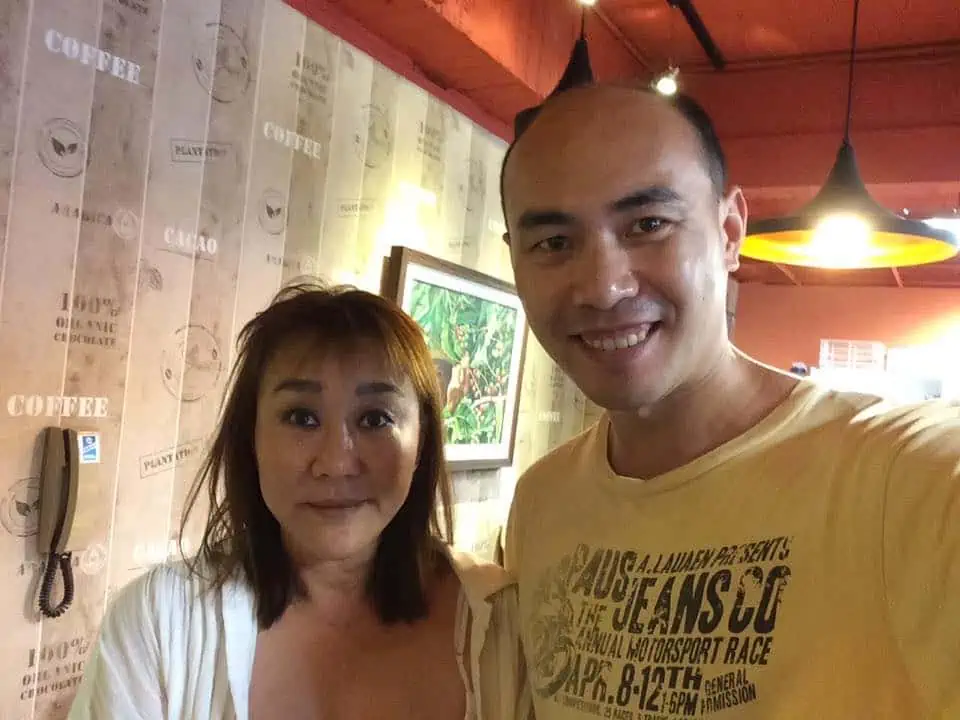
Heakyung Kang Burneskis of Panama’s Finca Don Julian with roaster Gary Liao of GK Coffee. Courtesy of GK Coffee.
We didn’t set out looking for any particular theme but find it interesting that our top-scoring coffees are each products of these women’s ability to expand their skills because of the shared circumstance of losing the men in their lives with whom they’d also partnered in work. These are the kinds of success stories we hold up as exemplars in the context of the many conversations going on about gender equity in coffee today.
A Guatemala, a Taiwan and an Ethiopia at 93
Our world tour of women-produced coffees continues with three coffees we rated at 93.
Barth Anderson of Barrington Coffee Roasting Company in Lee, Massachusetts, has been buying Paty Perez’ coffee since 2013, and this is the fourth year he’s offered this particular lot, from what Perez calls the “parte alta” or higher elevation of Finca Diamante in Agua Dulce, Huehuetenango, Guatemala. It makes for a boldly structured, richly chocolaty cup with undertones of tart, pomegranate-like fruit and dusky oregano.
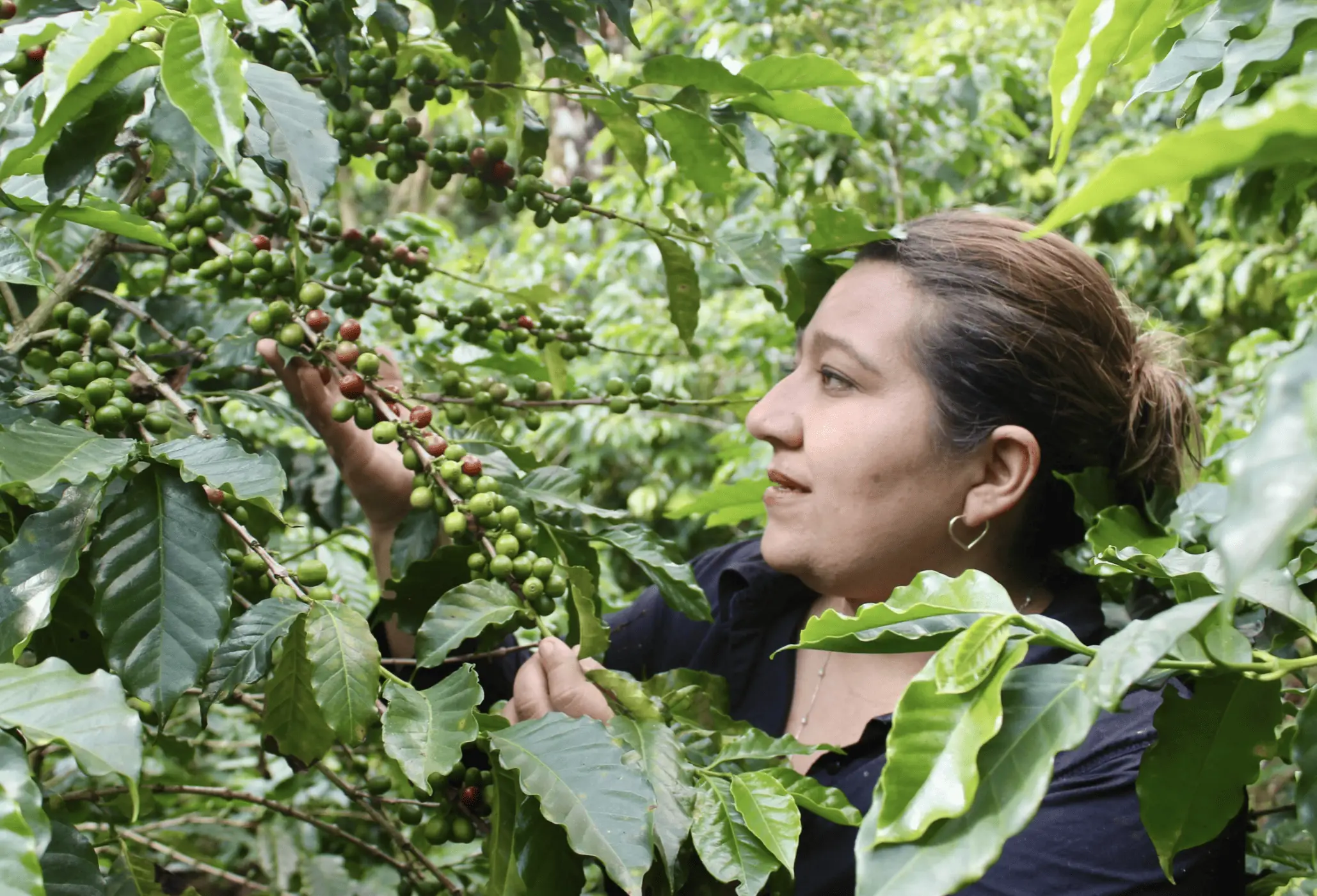
Guatemala coffee farmer Paty Perez, who produced Barrington’s Diamante Perez, which we review this month.
On the other side of the globe, in Nantou County, Taiwan is YuChin Kao’s Kanon Estate, where Kao grows, among other varieties of Arabica, the SL34 natural that Caesar Tu of Kakalove Café (also Taiwan-based) submitted for this report. It’s a complex, richly sweet-savory coffee with notes of salted caramel, tamarind, hazelnut, freesia and green peppercorn, evocative of the SL34 cup as produced in the variety’s home territory of Kenya but with an umami undercurrent that might be due to a different terroir in Taiwan. The name of her estate, Kanon, combines the names of Kao’s two grandmothers. While Kao studied social work, she is now running the farm with support from her family. Her goal is to ultimately combine both interests and educate youth in the community about the coffee industry, as well as offer jobs to people with disabilities.
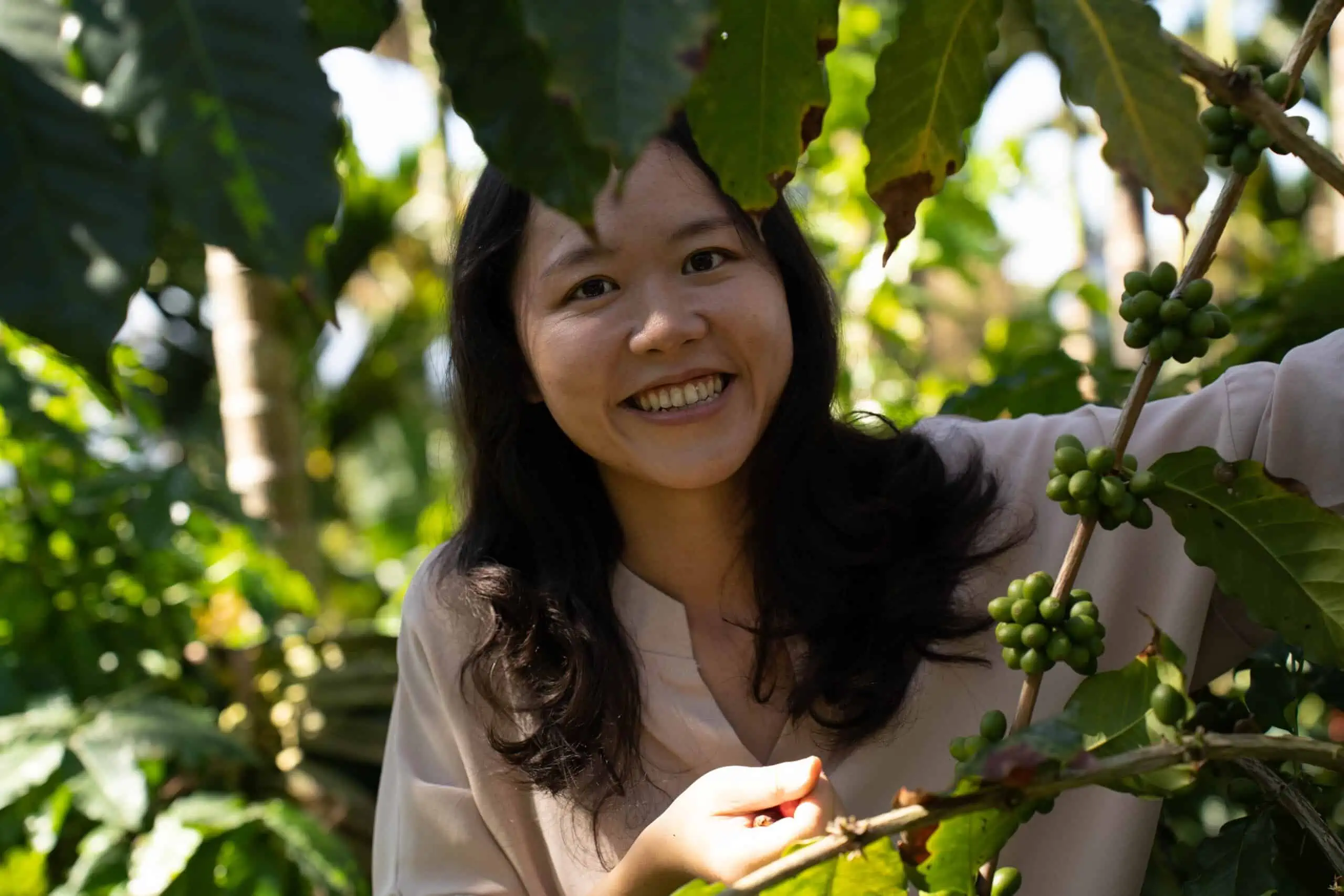
YuChin Kao of Kanon Estate. Courtesy of Kanon Estate.
Another roaster in Taiwan, Tom Chuang of Small Eyes Café, submitted an Ethiopia Gediyo Yirgacheffe Wegida Ama Commitment Burtukan Wako Natural G1 coffee that is striking for its floral depth and myrrh-like undertones along with bright nectarine notes. This coffee is the product of importer Linking Coffee’s relationship with Wubit Bekele, the founder of Ephtah Specialty Coffee, whose “Ama Commitment” program is directing a percentage of proceeds to support women farmers. This particular Yirgacheffe was farmed by Burtukan Wako, who inherited her husband’s land when he died in 2003.
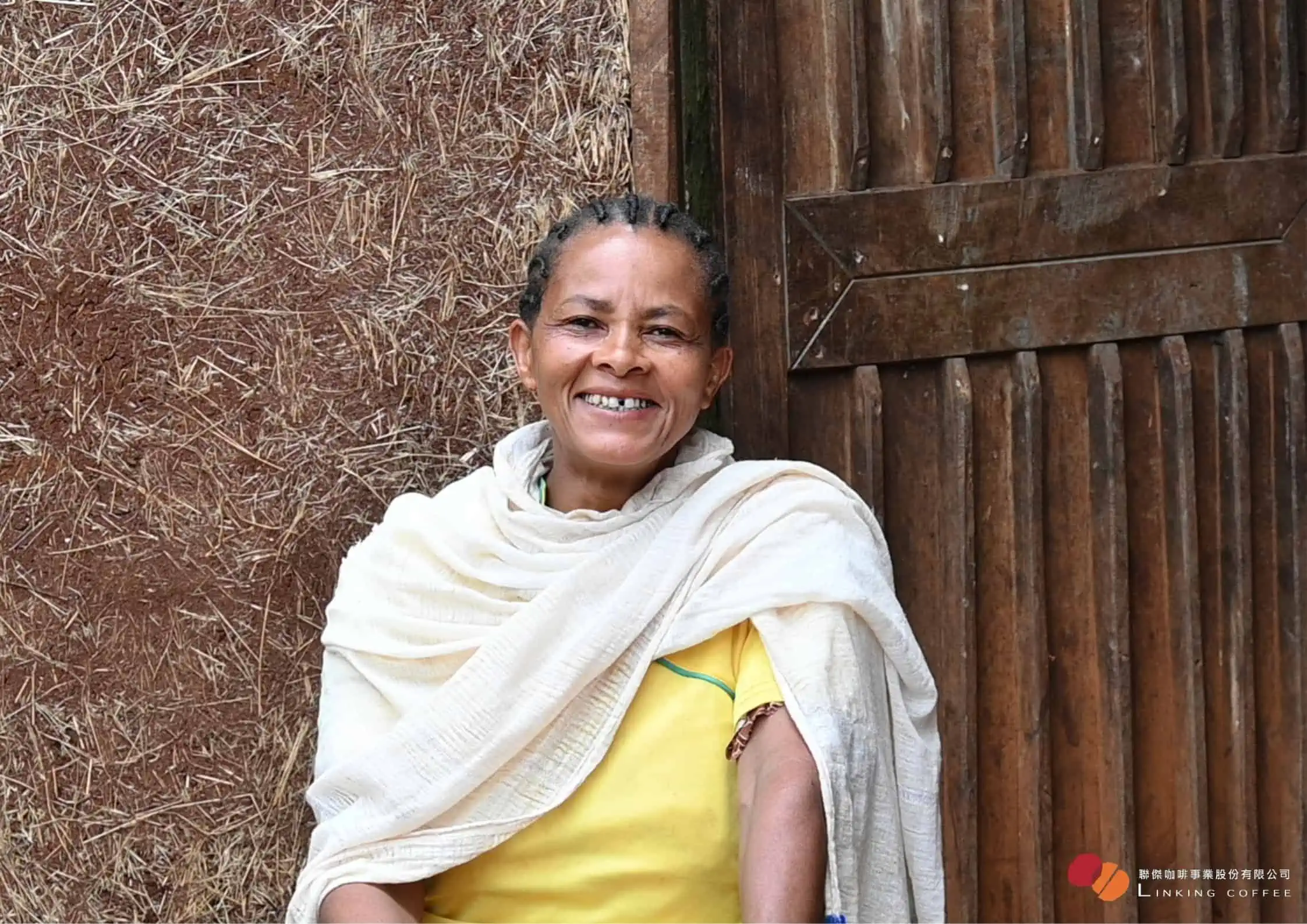
Yirgacheffe, Ethiopia coffee producer Burtukan Wako. Courtesy of Small Eyes Cafe.
Three More From Africa, and a Mexico
It’s not surprising that coffees from Africa fared well in this report, but it is especially heartening that the continent was so well-represented in terms of quality across many countries in our cupping. A Burundi, a Rwanda and another Ethiopia all made the top-scoring 10, along with a darker-roasted coffee from Mexico.
Equator Coffee’s Burundi Women of Turihamwe (92) is a berry-driven, spice-toned Burundi Bourbon (think mulberry, clove, ginger blossom) produced by a small investor group of seven women called Turihamwe Turashobora, founded in 2019 when the women pooled their resources to build a wet mill. It’s distributed by Burundi’s champion of women coffee farmers, Jeanine Niyonzima-Aroian, whose JNP Coffee has, for more than a decade, been devoted to the mission of empowering women coffee farmers, who still lack full property ownership rights or equal access to education. JNP Coffee has also purchased most of the coffee grown by members of the Burundi chapter of the International Women’s Coffee Alliance (IWCA) and supported other organizations that teach women financial literacy and leadership skills.
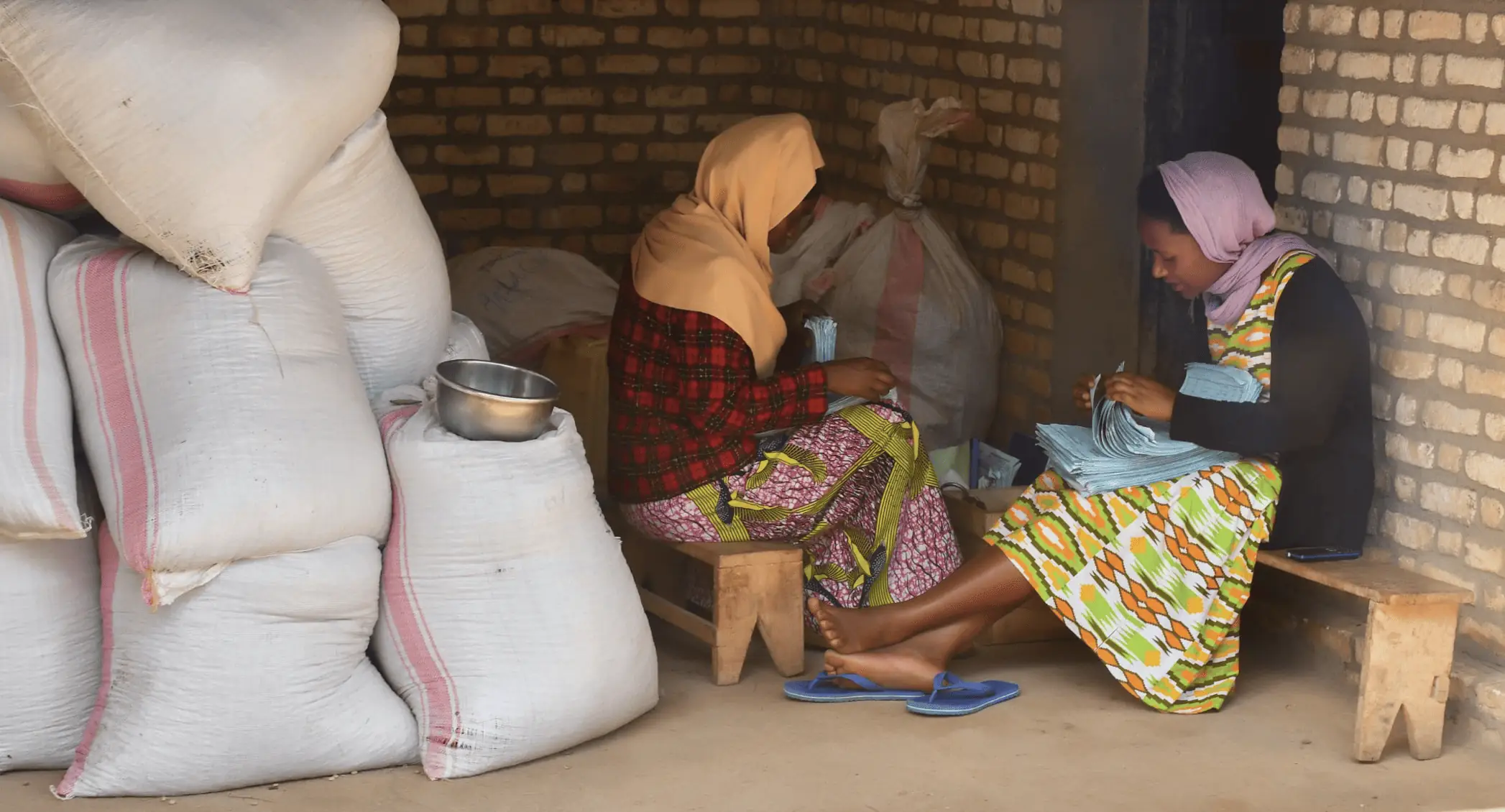
Working at the Turihamwe wet mill in Ngozi, Burundi. Courtesy of JNP Coffee.
A common model of coffee farming in Africa and other producing countries is to combine the crops of smallholding farmers around a centralized washing station, and Wonderstate Coffee’s Ethiopia Idido Tiluse Honey Process (92) is just such a coffee. In this case, the woman at the helm is Tiluse Washing Station owner Hirut Gute, who collaborated with Snap Specialty Coffee for this microlot, which is deep-toned and sweetly citrusy, with notes of pomelo, cantaloupe and cocoa nib.
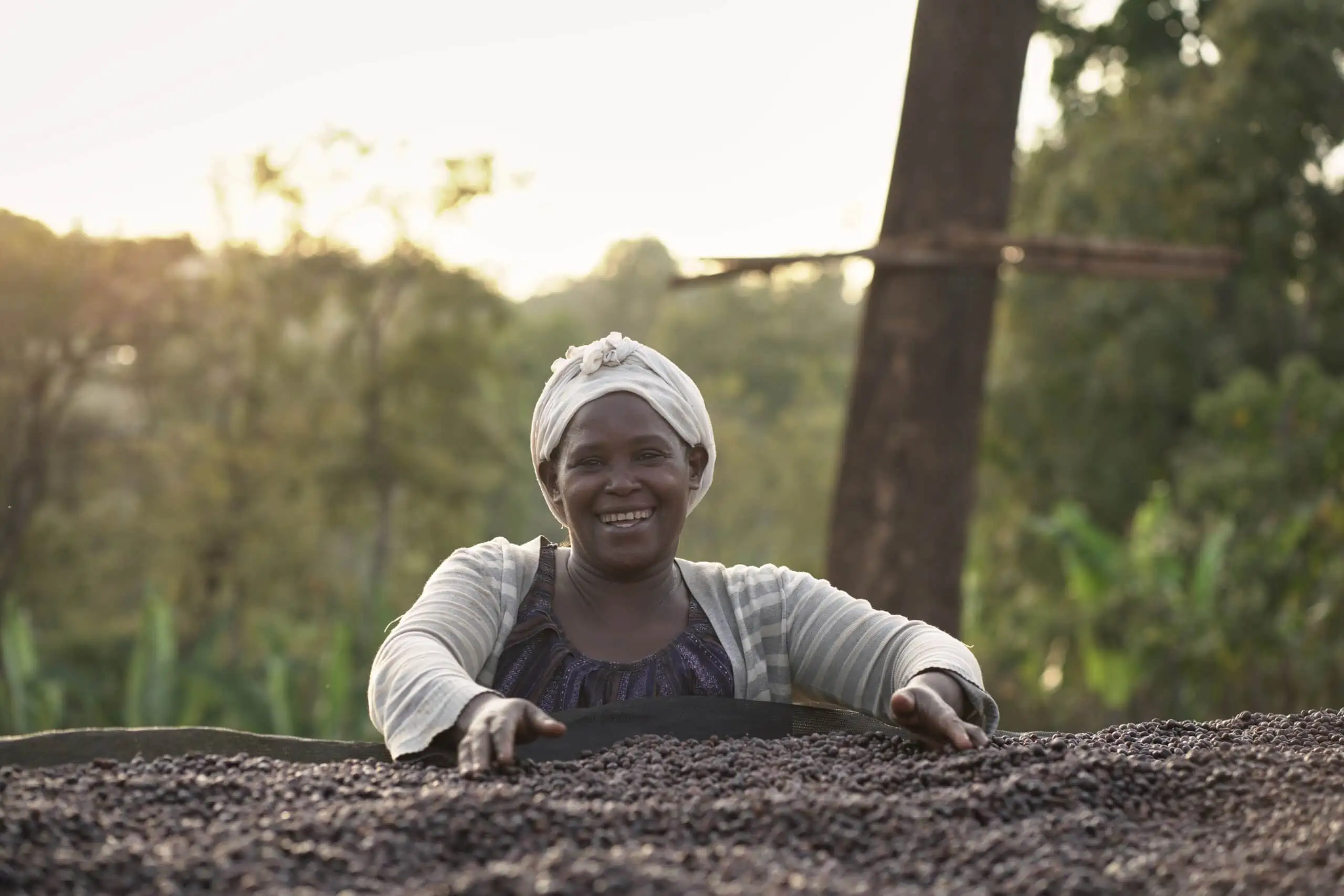
Hirut Gute turning coffees at the Tiluse Washing Station in Yirgacheffe, Ethiopia. Courtesy of Wonderstate.
Rwanda is widely admired in the coffee industry for its distinctive coffees from dedicated small producers organized around cooperative or private washing stations. Queen’s Crown Rwanda (91) was submitted by Los Angeles-based Cafecita, a women-owned roasting company whose business model is centered around sourcing only coffees from women-led farms and cooperatives. This microlot is produced by smallholding women farmers surrounding the Gasharu Washing Station.
And finally, we have San Diego-based Nostalgia Coffee’s Glory Days (92), which is a single-origin Mexico from Veracruz with notes of dark chocolate, dried cherry, cashew, gently scorched cedar, and gardenia, carefully roasted to medium-dark. Founder Taylor Fields sourced this coffee from Woman Power Zongolica Farm, a collective of 20 women producers. She adds that because her roastery is just 30 minutes from the border crossing into Mexico, it’s important to her to create deep ties with this close geographical neighbor, especially given that coffee from Mexico has been largely ignored in the specialty world until recently. The cherry on top is Nostalgia’s core mission, which as a gay woman-founded company is to support a systemic shift to a more equitable, inclusive, sustainable and diverse coffee industry.
Supporting Women Coffee Producers
We learned a lot in the process of discovering excellent women-farmed coffees to recommend to you this month, and even more compelling than what we found in the cup are the stories behind each uniquely wonderful coffee — the labor, the creativity, the resilience and the skill that made them all possible.










